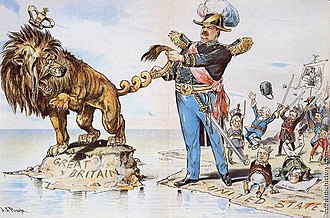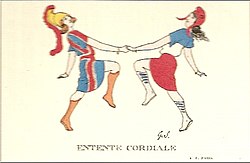This timeline covers the main points of British (and English) foreign policy from 1485 to the early 21st century.
Contents
- 16th century
- 17th century
- 1700–1789
- 1789–1815
- 1815–1860
- 1860–1896
- 1897–1919
- 1920–1934
- 1935–1945
- 1945–1989
- Since 1990
- Prominent diplomats
- See also
- Notes
- References
- Bibliography
- European diplomacy
- British diplomacy
- To 1814
- 1815–1965
- Recent
- Primary sources
| History of England |
|---|
 |





